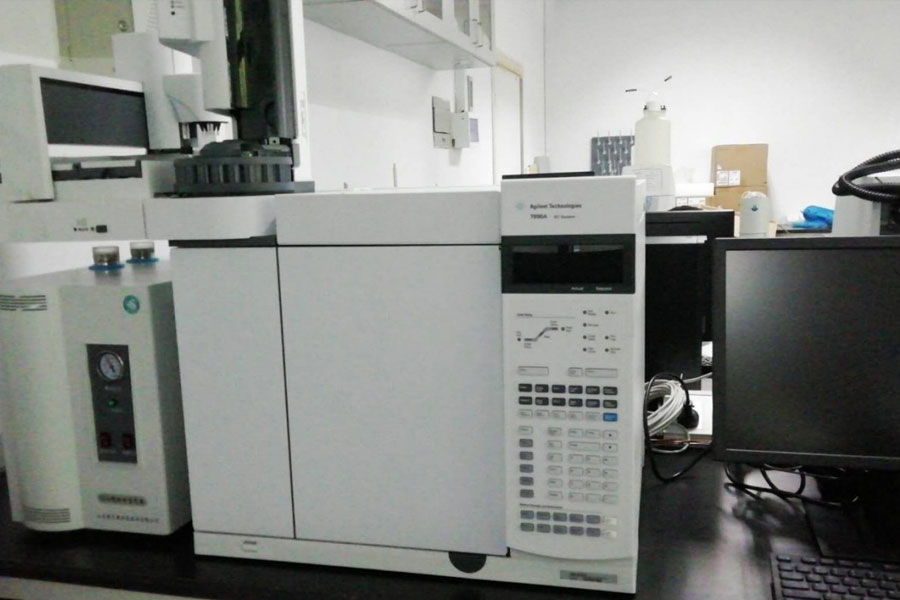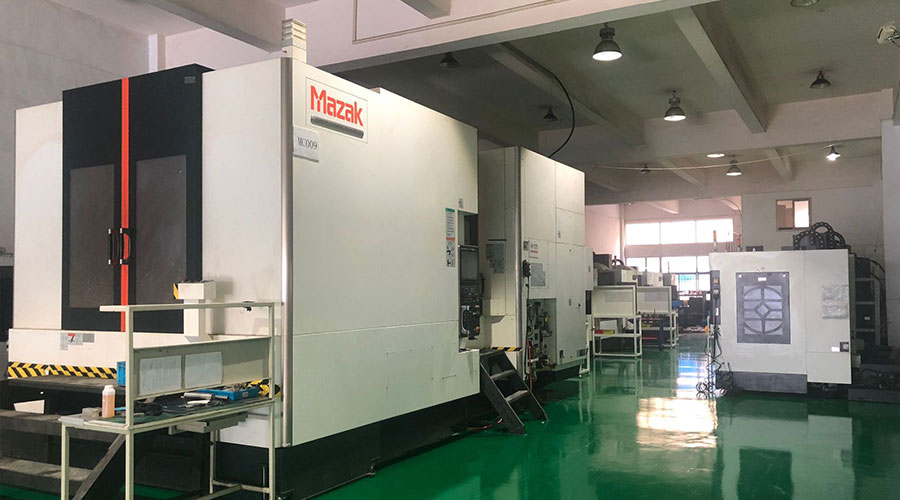Gel Permeation Chromatography (GPC) is one of the most effective and commonly used methods for testing the molecular weight and molecular weight distribution of polymer materials. In order to obtain accurate test results, the test sample must have good solubility in the GPC mobile phase solvent. PA is one of the most used engineering plastics. However, due to intermolecular hydrogen bonding, the solvents that can dissolve PA are very limited.

At room temperature, GPC commonly used mobile phase solvents, such as tetrahydrofuran (THF) and dichloromethane (CH2Cl2), cannot dissolve PA. However, previous studies reported that there are problems such as high requirements for GPC equipment, strong mobile phase solvent toxicity, and expensive chromatographic columns. H. Schuttenberg et al. proposed that PA can be N-acylated to solve the problem of PA solvent resistance. This method is widely used in GPC testing of various aliphatic PA and its copolymer systems.
PTJ et al. used PA10T as a sample to study the GPC test method of PA10T, which is generally suitable for various semi-aromatic high temperature resistant PA.
Main Raw Materials
- 1,10-decanediamine: purity>99.5%, Wuxi Yinda Nylon Co., Ltd.;
- Terephthalic acid: 99.99% purity, British Petrochemical Company;
- Sodium hypophosphite, ether: analytically pure, Guangzhou Chemical Reagent Factory;
- Methylene chloride: analytically pure, anhydrous treatment, Guangzhou Chemical Reagent Factory;
- Hexafluoroisopropanol (HFIP): analytically pure, Shanghai Aladdin Biochemical Technology Co., Ltd.;
- Deuterated chloroform (CDCl3): Analytical grade, Sigma-Aldrich, USA;
- THF: Chromatographically pure, Beijing Mindray Technology Co., Ltd.
- PA10T polymerization reaction
at 20? Add 2? 960? into the L stainless steel reactor. g terephthalic acid, 3? 200? g1,10-decanediamine, 6.2? g catalyst sodium hypophosphite and 2?550? g Deionized water. After evacuating and filling with nitrogen for three times, the temperature starts to rise. When the temperature of the material reaches 180℃, the stirring is started, 3? After h, the temperature of the material rose to 220°C. Stay 40 at this temperature? After min, the drainage starts. During the drainage process, the temperature of the material is controlled to be maintained at 220°C by adjusting the temperature of the heat transfer oil. The total amount of drainage is 1? 650? g. After draining, close the drain valve and keep it at 25? r/min rate stirring 8? After h, open the bottom valve, and spray the material into the stainless steel tank through the reaction pressure to obtain the reaction product.
N-acylation Of PA10T
will be 3? Is g PA10T placed at 250? In the mL reaction flask, replace the air in the reaction flask with nitrogen, and use a syringe to add 50? mL anhydrous treated dichloromethane
, stir 0.5? h. Then add 10? mLTFAA, room temperature reaction 24? h. The reaction product was dried by rotary evaporation at 40°C. After removing the unreacted TFAA and solvent, 20? Dissolve in mL of anhydrous dichloromethane. Subsequently, the solution was added dropwise to anhydrous ether for dispersion, and filtered to obtain a pure white solid powder. Dry in a vacuum oven at 50°C for 5? After h, a dry and pure N-acylated PA10T sample was obtained, denoted as PA10T-TFAA.
Method Accuracy And Application Range
- (1) FTIR, TG and 1H-NMR characterization of the N-acylation product of PA10T confirmed that the reaction proceeded successfully. By studying the influence of TFAA dosage and reaction time on the degree of N-acylation reaction, it was found that the ratio of the amount of TFAA to PA10T was 2.0 and the reaction time was 24? Under the condition of h, the PA10T-TFAA product with the grafting rate can be stably obtained, and the limit grafting rate of the reaction is about 75%.
- (2) Because the hydrodynamic volume of PA10T-TFAA is larger than the PS standard sample, the GPC test molecular weight with the PS standard sample as the calibration curve is much higher than the true molecular weight of the sample. Using a series of samples to be tested with different relative viscosities, the GPC was broadly corrected. The error between the corrected molecular weight and the true molecular weight of the sample is less than 4%, and the accuracy is good.
- (3) Combining the molecular weight and intrinsic viscosity of PA10T, the Mark-Houwink equation of PA10T is obtained by fitting. The applicable molecular weight range of this equation covers all commercialized PA10T products, which has important guiding significance for production practice.
Link to this article: GPC Test Method For High Temperature Resistant Polyamide Pa10t
Reprint Statement: If there are no special instructions, all articles on this site are original. Please indicate the source for reprinting:https://www.cncmachiningptj.com/,thanks!
 3, 4 and 5-axis precision CNC machining services for aluminum machining, beryllium, carbon steel, magnesium, titanium machining, Inconel, platinum, superalloy, acetal, polycarbonate, fiberglass, graphite and wood. Capable of machining parts up to 98 in. turning dia. and +/-0.001 in. straightness tolerance. Processes include milling, turning, drilling, boring, threading, tapping, forming, knurling, counterboring, countersinking, reaming and laser cutting. Secondary services such as assembly, centerless grinding, heat treating, plating and welding. Prototype and low to high volume production offered with maximum 50,000 units. Suitable for fluid power, pneumatics, hydraulics and valve applications. Serves the aerospace, aircraft, military, medical and defense industries.PTJ will strategize with you to provide the most cost-effective services to help you reach your target,Welcome to Contact us ( [email protected] ) directly for your new project.
3, 4 and 5-axis precision CNC machining services for aluminum machining, beryllium, carbon steel, magnesium, titanium machining, Inconel, platinum, superalloy, acetal, polycarbonate, fiberglass, graphite and wood. Capable of machining parts up to 98 in. turning dia. and +/-0.001 in. straightness tolerance. Processes include milling, turning, drilling, boring, threading, tapping, forming, knurling, counterboring, countersinking, reaming and laser cutting. Secondary services such as assembly, centerless grinding, heat treating, plating and welding. Prototype and low to high volume production offered with maximum 50,000 units. Suitable for fluid power, pneumatics, hydraulics and valve applications. Serves the aerospace, aircraft, military, medical and defense industries.PTJ will strategize with you to provide the most cost-effective services to help you reach your target,Welcome to Contact us ( [email protected] ) directly for your new project.
Link to this article:GPC Test Method For High Temperature Resistant Polyamide Pa10t
Reprint Statement: If there are no special instructions, all articles on this site are original. Please indicate the source for reprinting.:Cut Wiki,Thanks!^^
